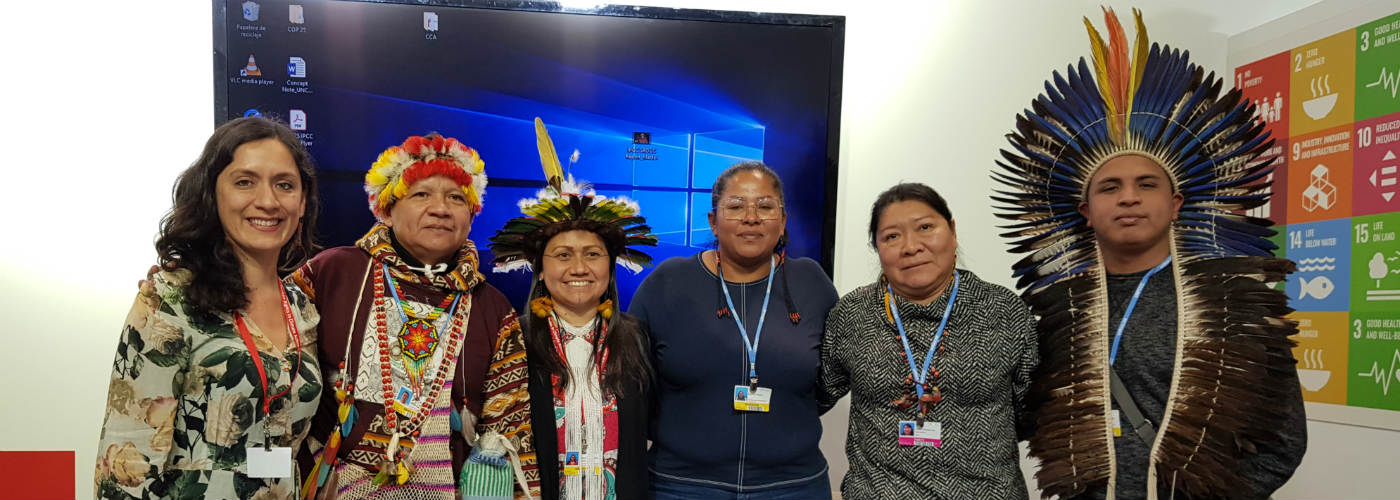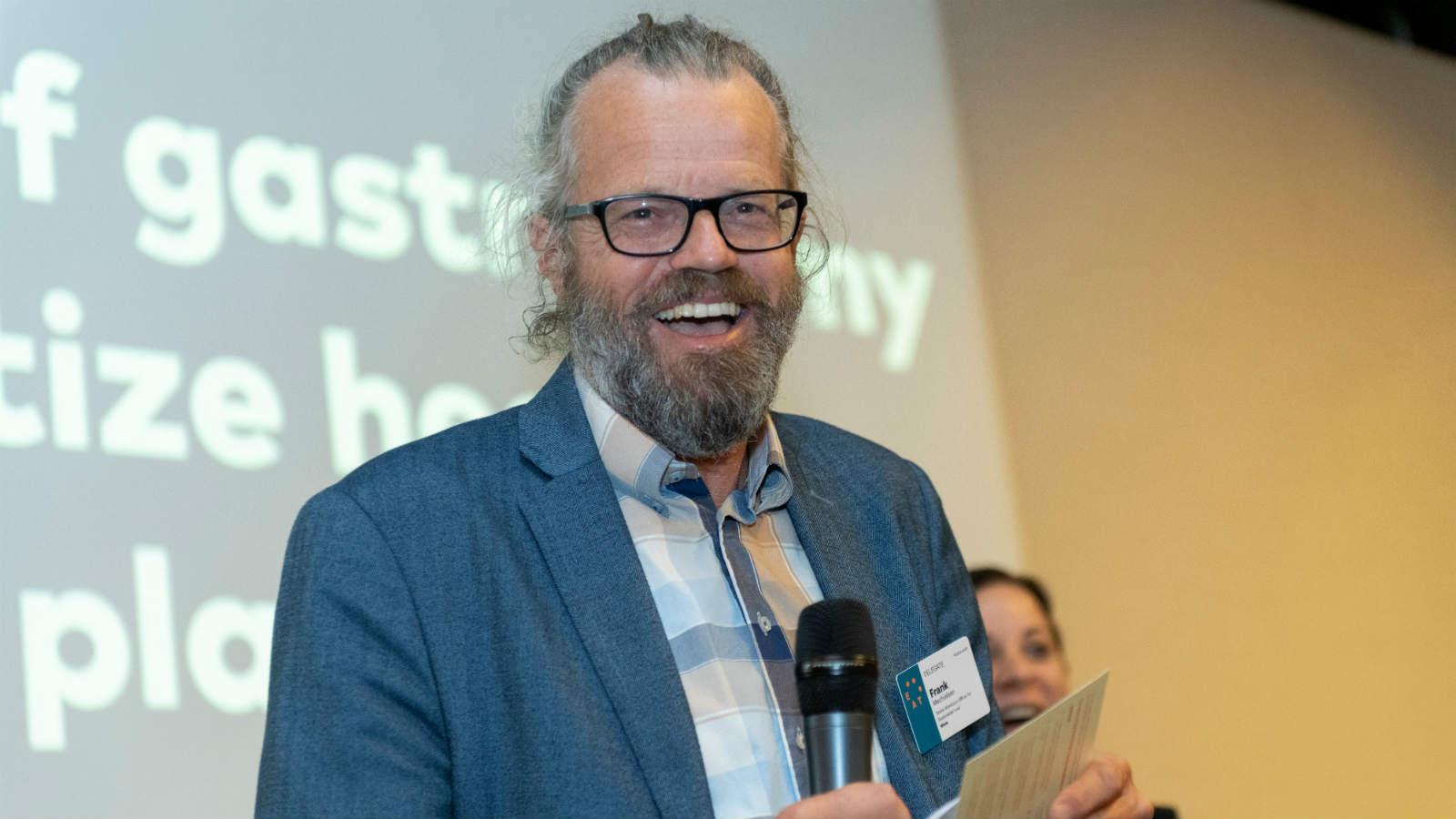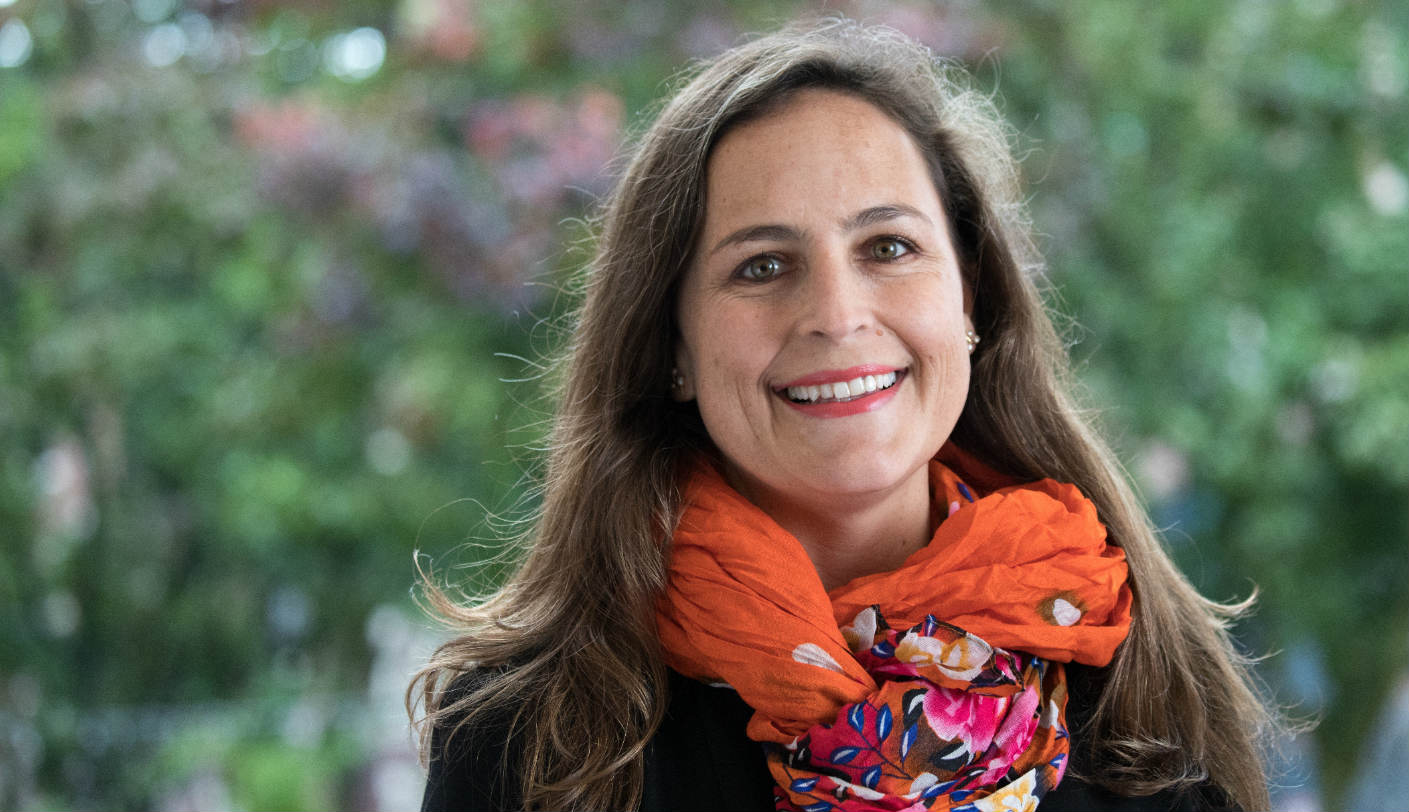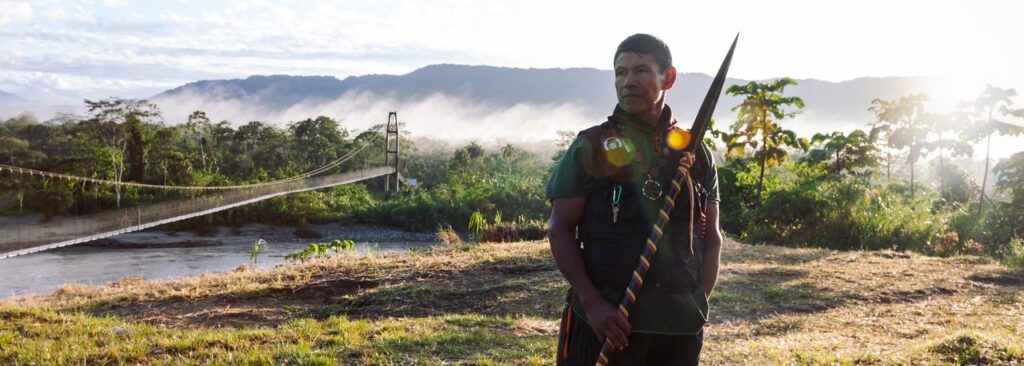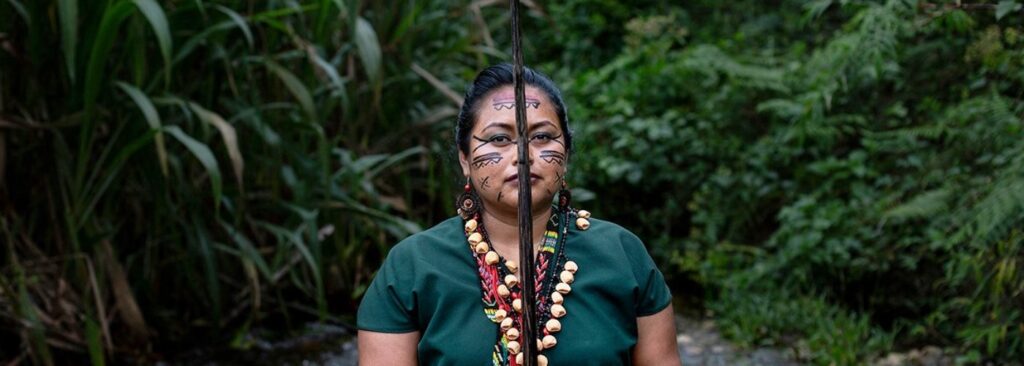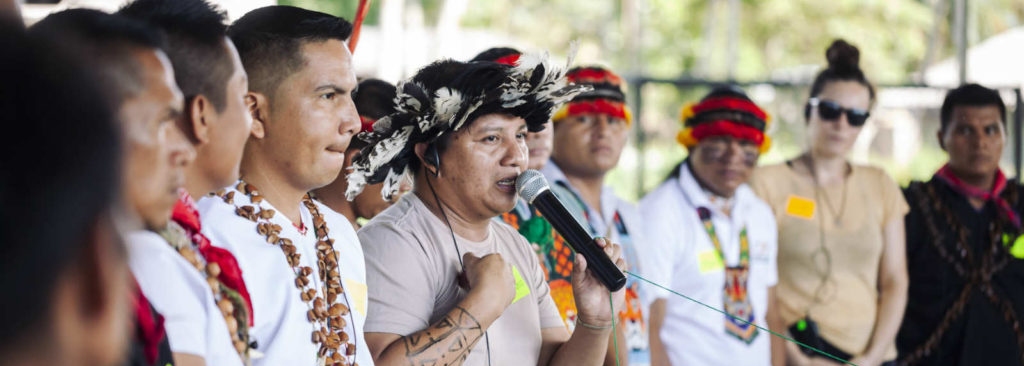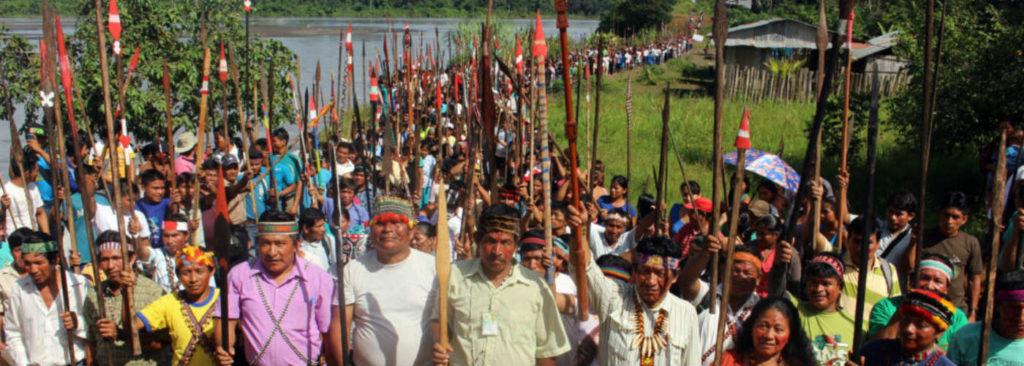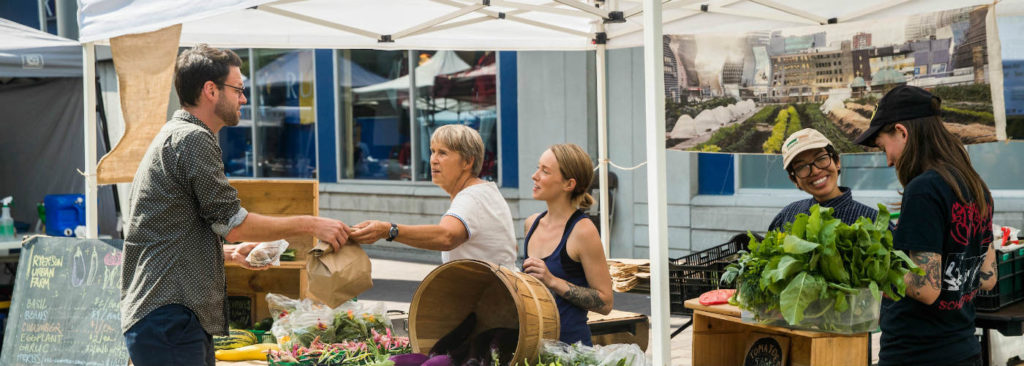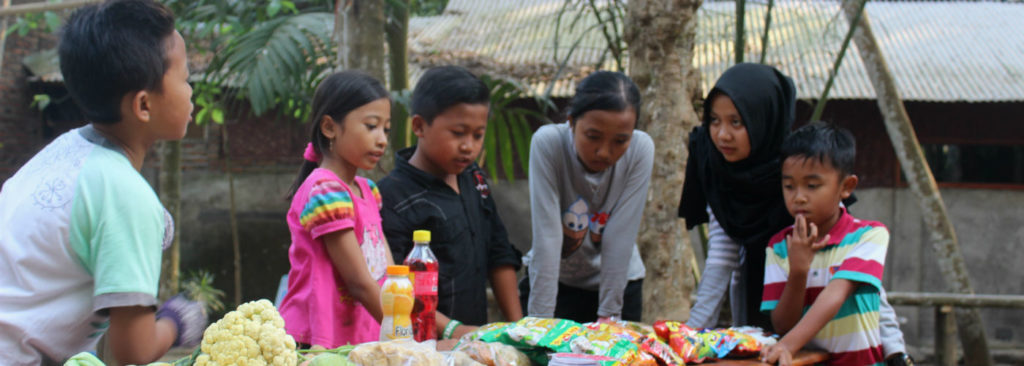How current consumption habits affect indigenous communities and the environment
Now that the COP 25 UN climate summit has ended, we see an ever more urgent need to safeguard the Amazon as part of the global fight against climate change. And to support the indigenous communities who are on the frontlines of protecting the rainforest.
Ironically, while the European Commission’s new European Green Deal includes planting two billion trees to combat CO2 emissions, our global food system is causing mass deforestation in the Amazon, which is simply self-defeating. We firmly believe climate action should focus on both the transformation of global food systems and the full recognition of indigenous peoples’ rights. Only through this, will we be able to reduce mass deforestation in the Amazon and prevent the climate crisis across the planet.
The Amazon rainforest, the largest in the world, is a hotspot of cultural and biological diversity. It plays a crucial role in the world’s climate. Rainforests not only provide us with oxygen; the trees also store greenhouse gas CO2 in their branches, leaves and roots. Tropical rainforests in particular are major storehouses of CO2 and act as the planet’s air conditioning. As rainwater continuously evaporates, it produces water vapor that cools down the air over the rainforest. This directly influences the local climate as well as the global climate in the end. So we cannot afford to put the Amazon rainforest at risk. We need forests to limit global warming and prevent the worst effects of climate change.
Focusing on food systems
Our current food systems are dominated by industrial agricultural practices like growing a single crop year after year without rotating and expanding agricultural land at the expense of forests and other ecosystems. In addition, many diets around the world require high levels of meat production. This despite the fact that we know agriculture has a huge negative effect on biodiversity, soil fertility and quality, water use and water pollution, and on the general health of ecosystems. For example, producing only a single crop degrades soil fertility, making it necessary to use more fertilizers, which in turn poisons the groundwater and the environment. But growing a diverse range of crops, especially those native to the land, is a sustainable farming practice that ensures soil fertility, preserves biodiversity, and keeps carbon in the soil.
Protecting the forest is not only the indigenous peoples’ responsibility.
Therefore, to protect the Amazon’s rich biodiversity and promote climate resilient forms of production, we need to change our food systems. We need to reduce our global addiction to palm oil and soy (for meat-producing animal feed) – two very important drivers of deforestation. If we can get our food systems right, we can address many problems related to climate change, the environment, and the health and rights of the people that depend on it. The farmers who produce our food, the indigenous communities who protect the forests, and the consumers who buy the food are all important change makers. As the recent IPCC’s report on Land and Climate Change states, it is especially important to recognize the role of indigenous peoples in global climate action and listen to their voices. The full recognition of indigenous land rights and the empowerment of indigenous peoples and indigenous women have proven to reduce deforestation and forest degradation, and avoid the associated emission of significant amounts of CO2 to the atmosphere.
Our responsibility
Protecting the forest is not only the indigenous peoples’ responsibility. Our current way of producing and consuming food is no longer acceptable. If we really want to stop destroying the Amazon, we must take our responsibility.
The Netherlands is a top investor in Brazil and one of its largest trading partners. The Netherlands is also a major importer and distributor of products that cause deforestation and pollution and lead to violence. We’re talking about timber and soy, animal feed and livestock farming, transport and logistics, including products exported from the Netherlands to other countries like (soy) flour, meat and eggs.
We call upon the Dutch government, banks and companies to make sure timber and agricultural products from the Amazon reaching the European market under no circumstances contribute to the destruction of the rainforest. And to make it mandatory for companies to trace their supply chains and ensure they adhere to human rights laws. Many governments offer cheap food to consumers by subsidizing mono-cropping or low quality food imports. They should instead be subsidizing locally produced, nutritious and diverse food. Diversity is essential for a healthy and sustainable global food system and the key to bringing our food systems into balance.
Stand with the guardians of the forest
Hivos works with indigenous and local communities in the Amazon rainforest. We stand with them and support their call to take our responsibility. All of us – governments, businesses and consumers – need to listen to indigenous leaders and take action. It’s about nature and people. About forests and their inhabitants. It’s about our health and the health of our planet.
Our All Eyes on the Amazon program supports indigenous peoples and local communities in their fight against deforestation and ecosystem degradation by protecting their rights. We combine state-of-the-art technology, such as satellites, innovative apps and drones, to detect deforestation and human rights violations, record them, and eventually stop them.
Our Sustainable Diets for All program strengthens the voices of people to demand changes in their food systems, empowering them to influence policy makers and private sector to transform food production and consumption to create a green society.

